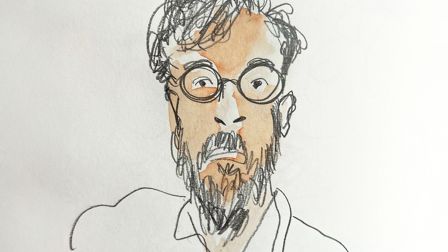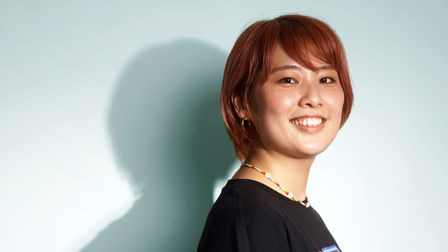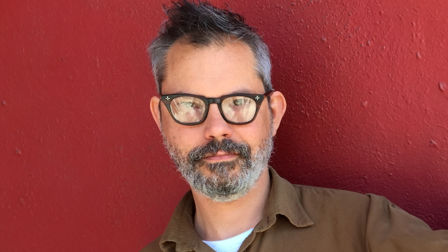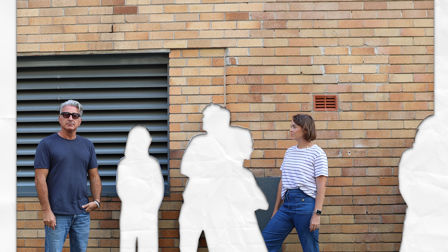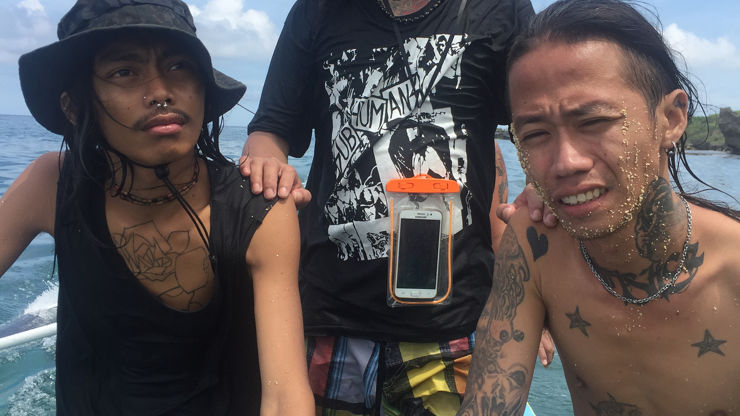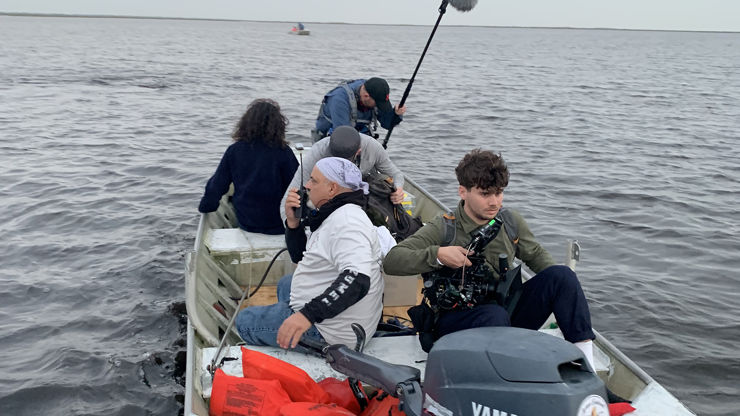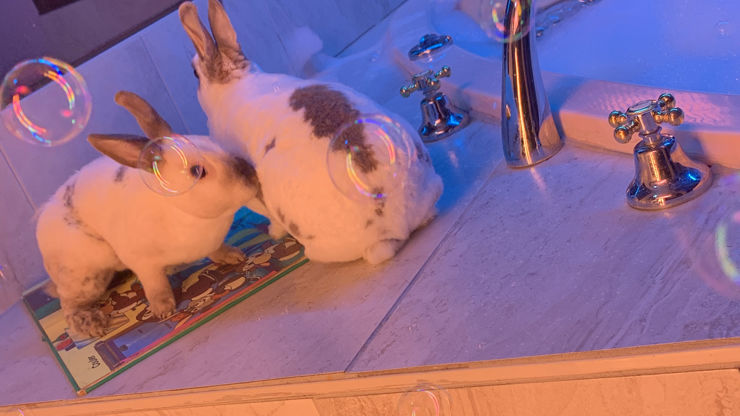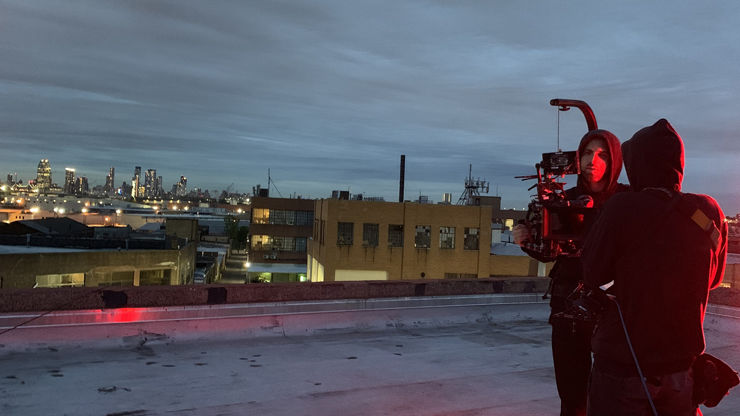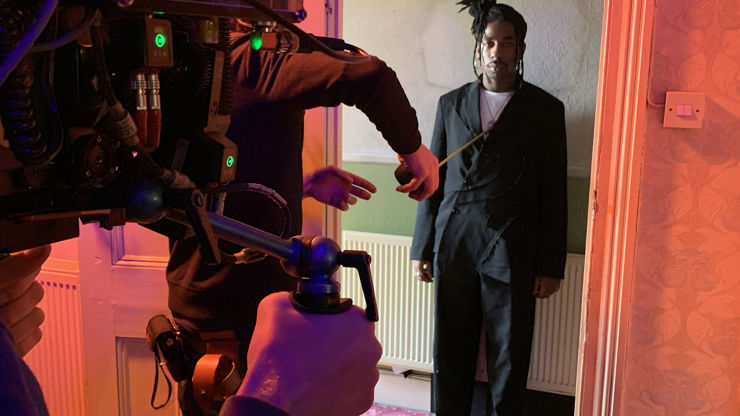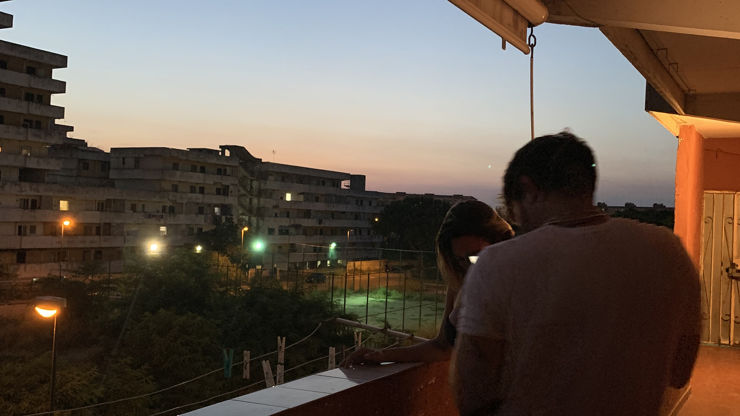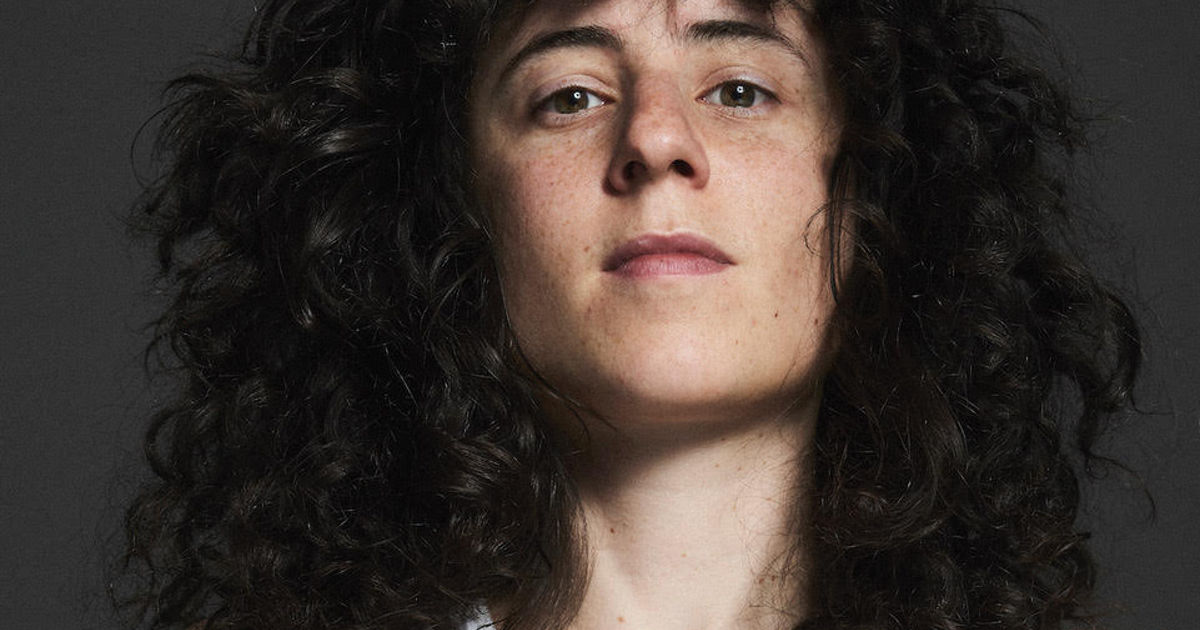)
Jess Kohl: The Prettybird breakthrough capturing the fringes of society
With her latest music video and a brand-new spot for Nike providing a hefty industry one-two punch, we speak to the filmmaker and photographer about what documenting marginalised communities has brought to her subsequent work.
Documenting the UK queer Jewish underground scene; following a group of rebel Filipino punks living under president Rodrigo Duterte’s ‘war on drugs’; highlighting the contrast between Indian and western queerness - Jess Kohl's first few years of filmmaking have seen her craft narratives from, and connect to, those whose stories need telling.
Graduating from Central St Martins with 1st class honours, Kohl intimate style and photography background have allowed her to bring to attention marginalised communities with authenticity and nuance, be it the candid and beautifully shot Nirvana (for which she won Best Documentary at both Athen and Milan Fashion Film Festivals) or her collaborations with Nowness and Dazed.
Signed to Prettybird last year, 2020 has seen Kohl release two impactful films in quick succession - last month's hugely enjoyable Switched Up promo for Oliver Malcolm and the gorgeously-captured, From the Grounds Up tale of redemption for Nike, launching today.
We caught up with Kohl to chat about how throwing herself into storytelling has informed her directorial skills from the get-go.
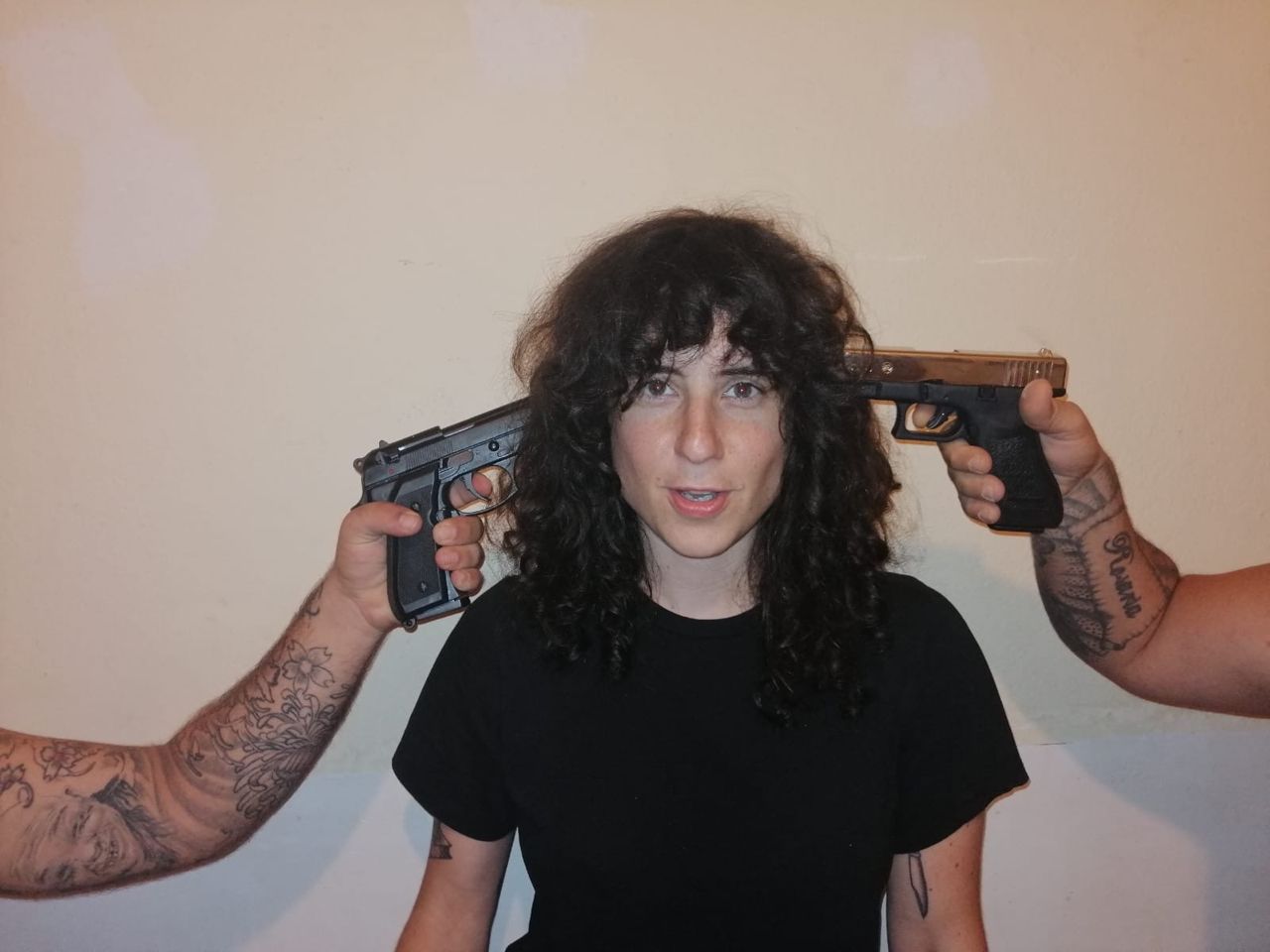
Above: Kohl in the thick of it, shooting her first film Anarchy in the Philippines.
How did you get into directing? What was it that initially appealed?
I never thought to myself ‘I want to be a director’.
It was a very natural trajectory for me - I started making films, very DIY at first just me wearing all the hats. From this, people started referring to me as a director.
I actually studied cinematography as a masters, mainly to gain a more technical understanding of cameras and lighting, though I quickly realised that I was more suited to directing as I tend to self initiate a lot of my projects, and don’t really like being told what to do!
How did studying at Central St Martins help forge your path?
Studying at Central Saint Martins was a great experience for me.
I went to university age 25, which was the right thing for me as I was really ready to study and absorb information in a way some of my younger classmates weren’t.
I graduated with a 1st class honours degree, which was amazing considering I’d been thrown out a number of secondary schools and had decided education wasn’t for me.
At CSM they really encourage experimentation, trying lots of different mediums. As long as you can justify why you’re making the work, it’s acceptable. I focused largely on photography, I spent days and months in the darkroom. I also started making little documentaries and experimental narrative films.
My final projects were a book about cemeteries in London, and a fiction film that followed the life of a lighter as it exchanged many hands.
I graduated with a 1st class honours degree, which was amazing considering I’d been thrown out a number of secondary schools and had decided education wasn’t for me.
Credits
powered by
Unlock full credits and more with a Source + shots membership.
Credits
powered by
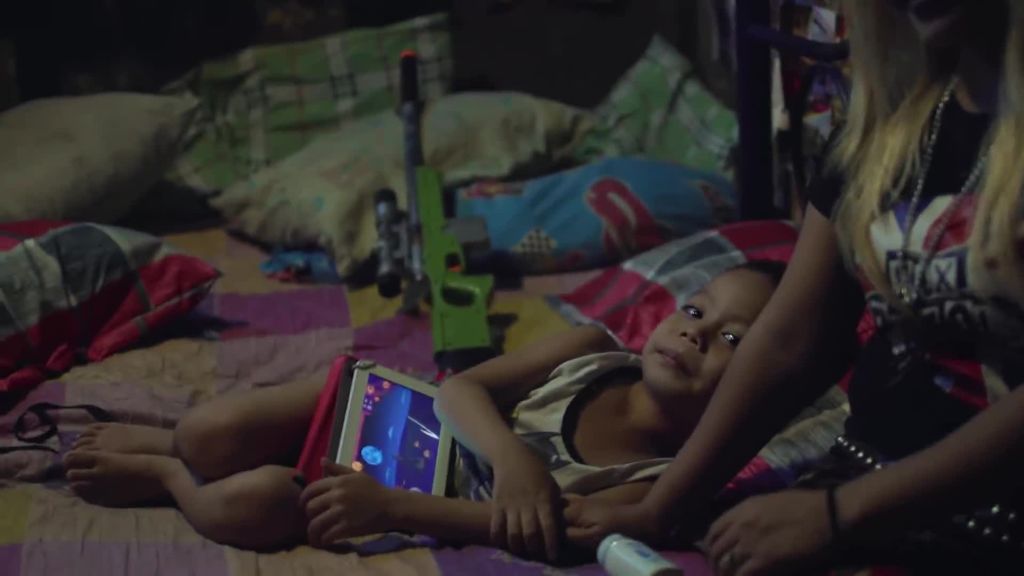
Credits
powered by
What was your first piece of directorial work? How did you choose your topic?
I graduated from my MA and felt compelled to get out and start making work, having been in education for 5 years at that point, I wanted to prove to myself that I could transfer the skills I’d learnt from institutions into the real world.
I’d been reading about the brutal war on drugs in the Philippines, which I felt was underrepresented in UK news and started thinking about how I could approach this as a film. Through research, I found a group of street punks who were living a true DIY punk lifestyle in this tropical corner of the globe.
I made my first film, Anarchy in the Philippines, as a one person team.
We kept in touch, and they were sending me videos of themselves hitchhiking around the country. I knew I had to go out there and make a film about them. I was terrified, going out into the unknown alone but I knew I needed to do it.
I made my first film, Anarchy in the Philippines, as a one person team.
Dazed Digital came on board in post and helped to craft it for online. It had an incredible response, and is one of the most viewed pieces on their site. That was really the start of my directing career - from there, commercial work started coming in, and since then I’ve been pretty consistently busy balancing commercial and personal projects.
Your work often throws a spotlight onto unique cross-sections of cultures, communities, sexualities and religions. What is it that makes those stories the ones worth telling? What do you think is the most essential aspect of capturing them well?
I’m interested in outsiders, people who are struggling with their identities in some way. Those who have been pushed to the fringes of society or who have chosen to be there.
A camera is an amazing license to ask questions and see parts of humanity that are usually hidden.
My work is very people-centric, focused on humanity. I guess I relate to outsiders in some way as I’m a bit of a misfit myself. For me, it’s also about having intense learning experiences. My work allows me to open doors into worlds that I wouldn’t ordinarily have access to. A camera is an amazing license to ask questions and see parts of humanity that are usually hidden.
I build strong relationships with my subjects and they become my friends. We keep in touch long after projects are finished. It’s essential for me that I capture people in an honest and authentic way - style vs substance is one of the challenges in doing this.
I want my work to look beautiful and considered, which is a challenge when capturing reality as you can’t always plan. But I enjoy this challenge and finding innovative ways to tell authentic stories.
Above: Behind the scenes pics of Kohl in action.
With Prettybird, you've been exploring more branded and music video work. What aspects of your other filmmaking experiences do you feel you bring to these?
Whatever I’m working on I approach with the same intensity and integrity,
I’m quite obsessive when I become immersed in a project. I was told early on by a photographer I assisted to make the work I wanted to get paid to make, and that has really been my experience. Brands respond really well to my personal work, and I think people connect with the authenticity I bring to projects.
I’m grateful that Prettybird have given me opportunities to work on commercial projects that feel like an extension of my personal projects - they really understand and support me as a filmmaker across all the projects I work on.
Your Nike work breaks today - how did you get involved in that project?
The Nike project came about through the lovely Nikola at Girls in Film. She was working with Nike and put me forward for the Bobby Kasanga film.
Brands respond really well to my personal work, and I think people connect with the authenticity I bring to projects.
It’s amazing to have been approached with such a brilliant story that already had great access. Bobby is totally some one I’d want to make a film about anyway, so it was really the dream project.
What was the most powerful moment of filming with Bobby Kasanga? Did the project throw up any unexpected issues?
Bobby is such an engaging and charismatic guy, it was really powerful watching him talk to the Hackney Wick FC youth team, which the film is centred around.
He really comes to life when he’s engaging with his team - his natural leadership skills shine through really strongly.
Credits
powered by
-
- Production Company PRETTYBIRD/UK
- Director Jess Kohl
-
-
Unlock full credits and more with a Source + shots membership.
Credits
powered by
- Production Company PRETTYBIRD/UK
- Director Jess Kohl
- Production Co. Girls in Film
- Editor The Quarry
- Grade Framestore/London
- Talent Bobby Kasanga
- Producer Nikola Vasakova
- Assistant Director Eno Enefiok
- Sound Designer Bridgitte Bradshaw
- Composer Roger Goula
- Executive Producer Juliette Larthe
- DP Steve Annis
- Editor Gary Forrester
- Grade Simon Bourne
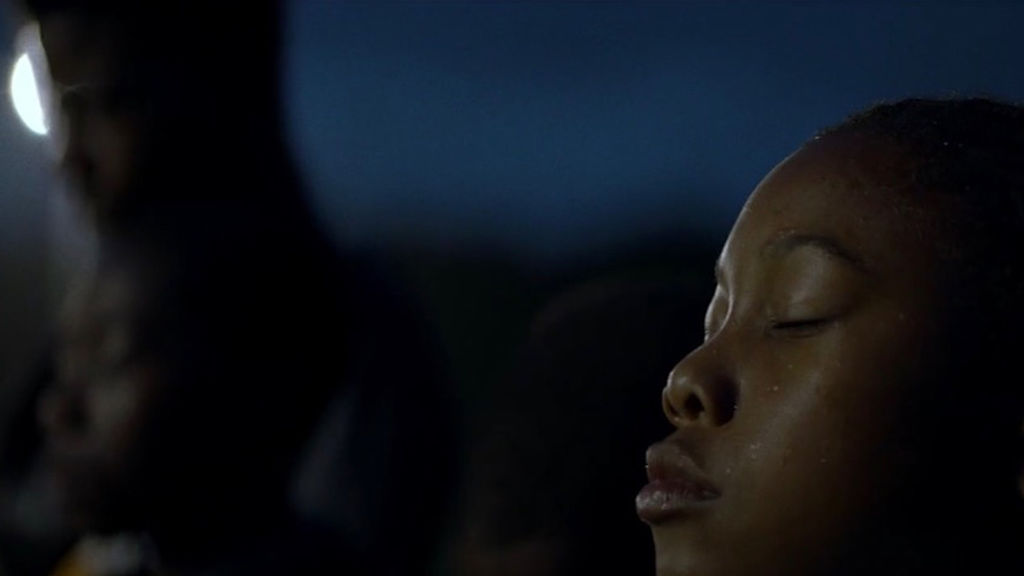
Credits
powered by
- Production Company PRETTYBIRD/UK
- Director Jess Kohl
- Production Co. Girls in Film
- Editor The Quarry
- Grade Framestore/London
- Talent Bobby Kasanga
- Producer Nikola Vasakova
- Assistant Director Eno Enefiok
- Sound Designer Bridgitte Bradshaw
- Composer Roger Goula
- Executive Producer Juliette Larthe
- DP Steve Annis
- Editor Gary Forrester
- Grade Simon Bourne
We recently featured your terrific promo for Oliver Malcolm's debut single. Can you tell us a little about your experience on that? Did you have to work with Malcolm on his performance style, or just unleash him in front of the camera?
This was my first music promo and it was very fun to make. Oliver is full of energy and is an incredible performer, he describes his performance style as releasing energy rather than dancing which I think really comes across in the video.
It’s really exciting being part of Oliver’s launch into the world, as he’s still defining himself as an artist so there’s a lot of room for creative input.
Oliver is full of energy and is an incredible performer, he describes his performance style as releasing energy rather than dancing which I think really comes across in the video.
We’re very aligned on what we like visually so he was a joy to work with.
Are there any types of projects you're keen to work on in the future? What would be your dream gig?
I’d love to work on more projects like the Nike one - this felt like a great balance of both style and substance.
I was able to bring a creative approach to the project, but at the heart of it is a meaningful and authentic story which I think comes across in the final edit. I’d like to work on more purposeful commercial work like this in the future.
I’m currently working on a long form documentary too - learning to tell stories over longer periods of time, and spending more time with my subjects is something I aspire to do more of.
Credits
powered by
-
- Production Company PRETTYBIRD/UK
- Director Jess Kohl
-
-
Unlock full credits and more with a Source + shots membership.
Credits
powered by
- Production Company PRETTYBIRD/UK
- Director Jess Kohl
- Grade Electric Theatre Collective
- Executive Producer Juliette Larthe
- Producer Chris Murdoch
- Production Manager Cole Santiago
- Production Designer Matt Sokoler
- Art Director Devin Parker
- DP Eli Ronen Arenson
- Editor Arielle Zakowski
- Colourist Ruth Wardell
- Colour Producer Oliver Whitworth
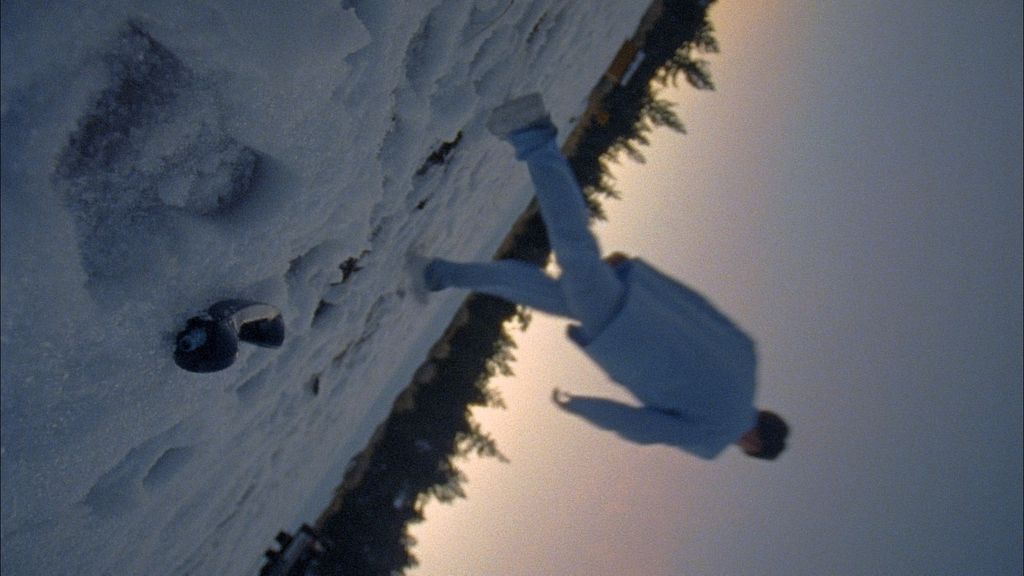
Credits
powered by
- Production Company PRETTYBIRD/UK
- Director Jess Kohl
- Grade Electric Theatre Collective
- Executive Producer Juliette Larthe
- Producer Chris Murdoch
- Production Manager Cole Santiago
- Production Designer Matt Sokoler
- Art Director Devin Parker
- DP Eli Ronen Arenson
- Editor Arielle Zakowski
- Colourist Ruth Wardell
- Colour Producer Oliver Whitworth
In the meantime, what's up next for you?
I’m currently in post on two short documentary projects that I’m very excited to get out into the world having not been able to do as much of this type of work having been busy on branded work.
I’m continuing to work on my feature doc, which requires a lot of time and dedication.
I’m also pitching on some commercials and some more music videos - so hopefully I’ll have more to share with you soon!
)
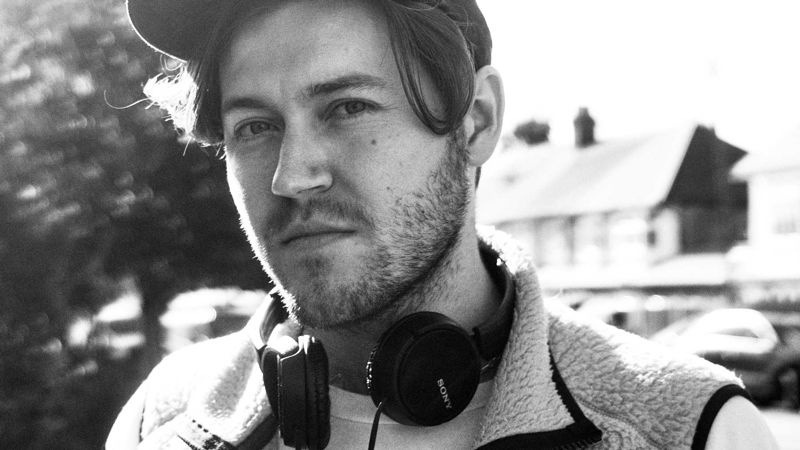
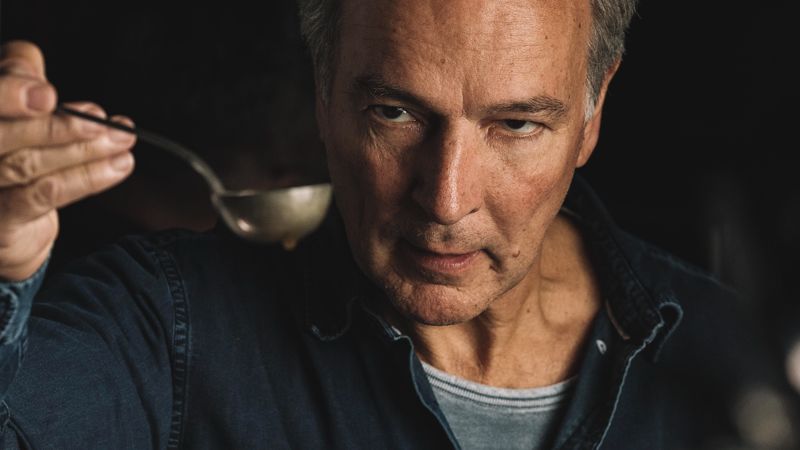


 + membership
+ membership

